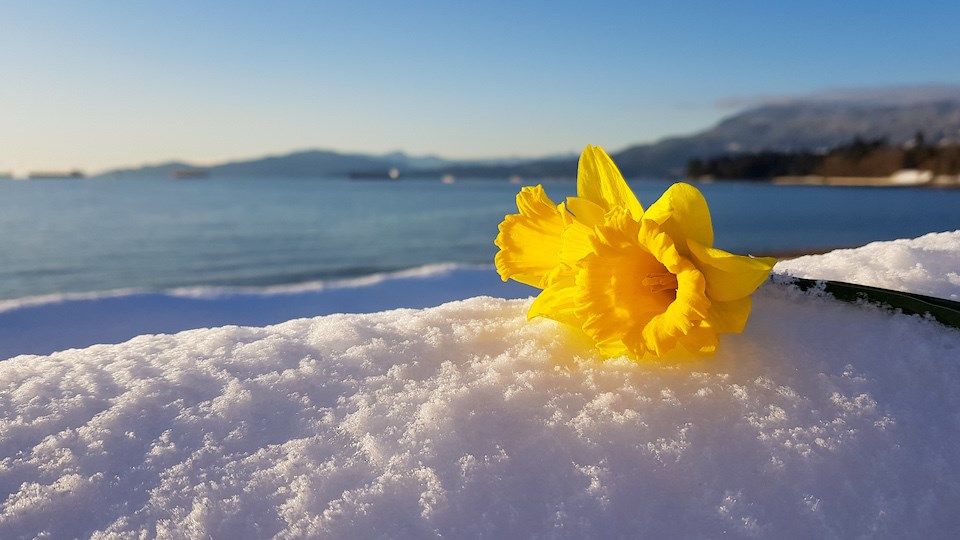Metro Vancouverites seemed to breathe a collective sigh of relief as temperatures warmed up in the region following a near record-setting deep freeze at the end of December.
And while meteorologists warn that winter isn't over—the worst of it is likely behind us.
Locals took to social media this week to describe what they say is a "fool's spring" in the Lower Mainland: a time after the first cold snap in winter when temperatures warm up significantly and people believe the coldest part of the season is over. This is exactly where the "foolish" part comes in, however. Instead of continuing on the warming pattern—or even staying consistently warm—temperatures fall back down again. The "fool's spring" is then followed by a second winter and yet another "spring of deception." A third winter follows that season, too.
While these additional seasons were made in jest, Environment Canada meteorologist Doug Lundquist told Vancouver Is Awesome in a phone interview that they aren't altogether incorrect.
"That's how B.C. works. We're bimodal...which means we have two different regimes," he explained. "In B.C., that means we're either a little bit above average, and for a long period of time in winter, that's our main mode. We're a bit above average and for a long period of time.
"Mode number two is arctic air, which is way below average and it doesn't usually last as long."
Lundquist notes that Metro Vancouver typically only sees one period of truly cold winter and that there are usually only one to three arctic air events per year. Moving forward, the region could have another cold-weather event in February or March; he doesn't see any extreme cold moving into the region in the 10-day forecast.
But arctic air that moves into the Lower Mainland in February or March won't be as cold as the temperatures the region saw in December, he emphasized. "That is impossible."
Since the arctic air moved into the region near the winter solstice, there weren't enough daylight hours to allow for significant warming. In contrast, there will be increasing daylight hours in the months ahead, which means temperatures won't dip as low.
Lundquist compares the December cold weather event to the record-breaking heat the province grappled with in June. The heat dome coincided with the spring solstice, which means temperatures were able to rise during the longest days of the year.
For now, the meteorologist encourages Metro Vancouver residents to enjoy the respite from harsh weather events—even if it's only for a week or two.
As he underscored: winter isn't over yet.



